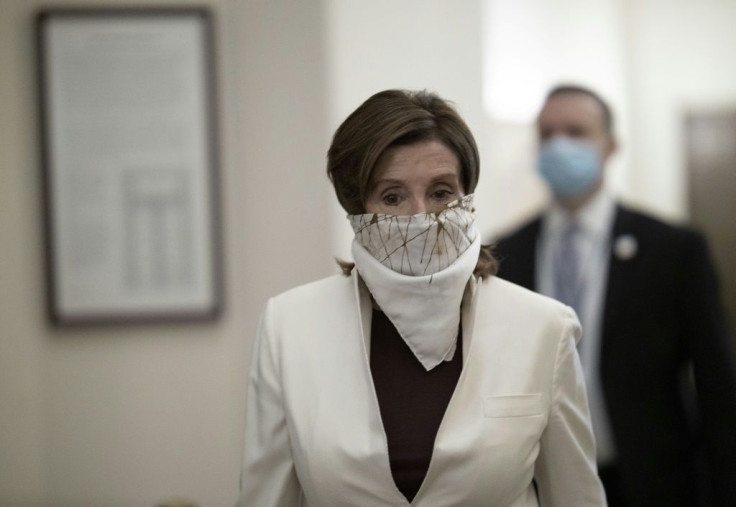US - China Relations: Pelosi Slams Trump On Delaying Sanctions Over Muslim Detention Camps

House Speaker Nancy Pelosi, D-Calif., slammed President Trump on Monday for delaying sanctions on Chinese officials tied to detention camps of China's Uighur Muslim minority. Trump said recently that he held off on sanctions because he did not want to jeopardize the prospects of a trade deal between Washington and Beijing.
"If America does not speak out for human rights in China because of commercial issues, we lose all moral authority to speak out for human rights any place in the world," Pelosi said in a statement. "President Trump’s admission that he is looking the other way and enabling one of the worst human rights atrocities of our time in order to ink a trade deal is appalling."
In an interview with Axios on Friday, Trump said he had not enacted sanctions on Chinese officials involved in the camps because “we were in the middle of a major trade deal."
"And I made a great deal, $250 billion potentially worth of purchases. And by the way, they're buying a lot, you probably have seen,” Trump said, referring to the Phase One trade deal signed in January. "And when you're in the middle of a negotiation and then all of a sudden you start throwing additional sanctions on — we've done a lot. I put tariffs on China, which are far worse than any sanction you can think of."
On Wednesday, Trump signed the Uyghur Human Rights Policy Act of 2020, with the legislation imposing sanctions on Chinese officials involved in the detention and persecution of the Uighur minority. In response, Beijing said the legislation “rudely interferes in China’s internal affairs.”
Yet, Trump already had the power to impose sanctions on the issue under the Global Magnitsky Act. The Magnitsky Act allows the administration to implement sanctions on human rights offenders and bar them from entering the United States.
The President has been harshly criticized on the issue after a new memoir from former National Security Adviser John Bolton alleged that Trump encouraged Chinese President Xi Jinping to continue building detention camps for Uighurs.
China is reportedly detaining hundreds of thousands of Turkic Uighurs in these camps, as part of a “people’s war on terror” announced in 2014. Many of the Uighurs are being detained without a trial or charges levied against them. The camps are formally known as Vocational Education and Training Centers by the Chinese Communist Party (CCP) and are located in the northwestern province of Xinjiang, where the majority of Chinese Uighurs live. Detainees who fled the camps said they were forced to renounce Islam and pledge loyalty to the CCP.
U.S. policy towards China’s treatment of Uighurs can expect to shift in 2021 should Democratic presidential candidate Joe Biden wins in November.
“China’s internment of nearly one million Uighur Muslims is among the worst abuses of human rights in the world today. The U.S. cannot be silent — we must speak out against this oppression and relentlessly defend human rights around the world,” Biden tweeted in November.
© Copyright IBTimes 2025. All rights reserved.





















